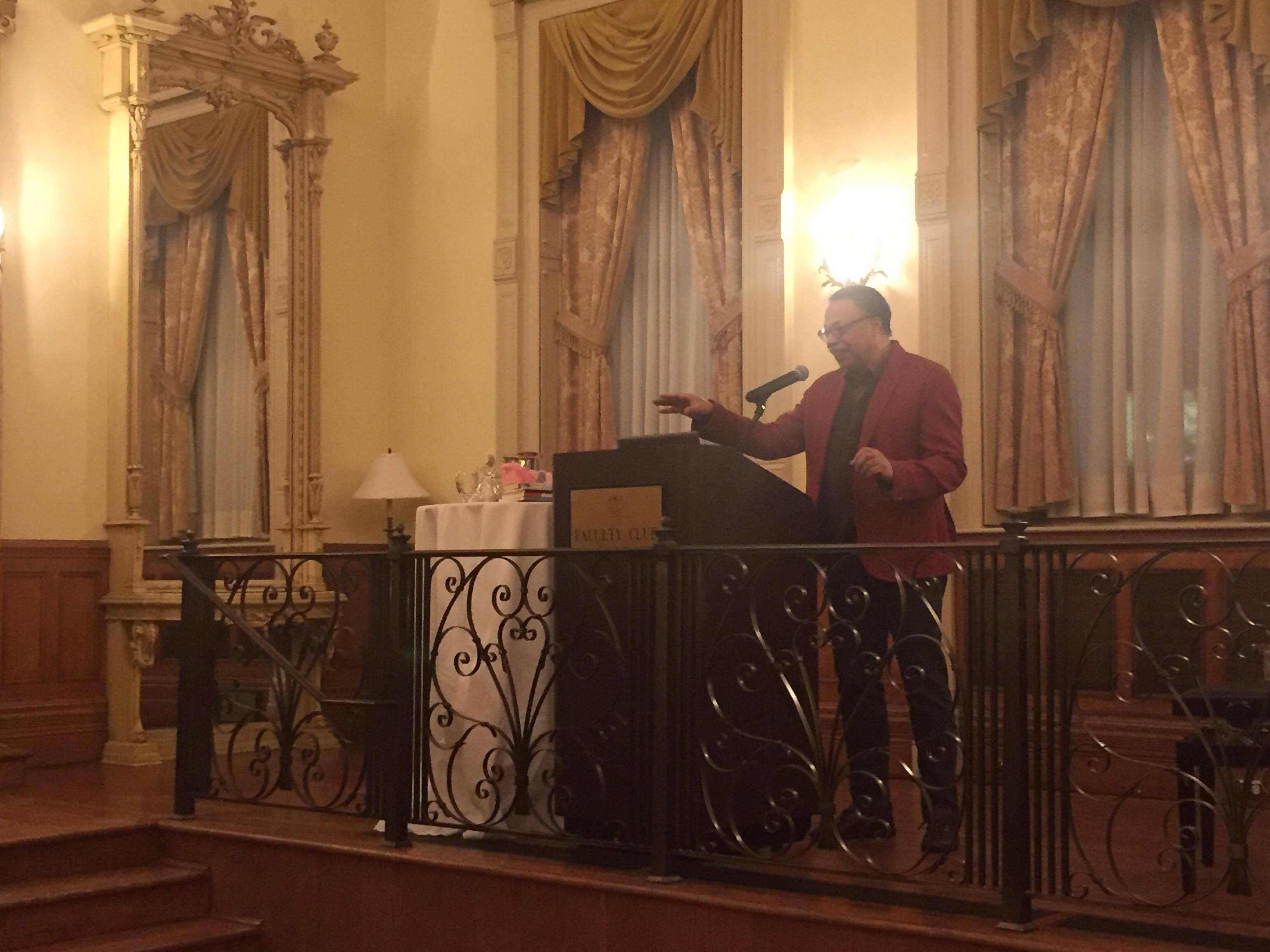On Jan. 31, members of the Black Students’ Network of McGill (BSN) and the Social Equity and Diversity Education Office (SEDE) launched McGill’s third annual Black History Month at the Faculty Club. The event featured parliamentary poet laureate, playwright, and University of Toronto English Professor George Elliott Clarke as the keynote speaker and included musical performances by harpist Christelle Saint-Julien and Schulich School of Music pianist Daniel Clarke Bouchard.
Black History Month is celebrated across Canada in February to commemorate the achievements and contributions made by black Canadians to building the country’s culture, heritage, and identity. Equity Educational Advisor in Anti-Oppression and Anti-Racism Shanice Yarde acknowledged McGill’s support of Black History Month in her opening statement.
“This is our third annual celebration of Black History Month at McGill, which is really exciting,” Yarde said. “And I know [three] seems like a really small number, but we have to start somewhere.”
Following a prayer and a welcome address by Sedalia Kawennotas, elder of the Mohawk nation, Provost and Vice-Principal Academic Christopher Manfredi delivered a statement on behalf of Principal and Vice-Chancellor Suzanne Fortier, addressing Black History Month 2019’s theme of ‘justice.’
“Since the beginning of my term as Provost, I have identified equity and inclusion as my priorities, knowing that the pursuit of these goals is crucial to the intellectual openness and academic excellence for which McGill constantly strives,” Manfredi said. “This commitment to equity bears fruit in different important ways, and tonight is a striking example of this.”
The last speaker to take the stage was Clarke, who stressed the role of higher education in providing the tools and knowledge necessary to revolutionize communities.
“To be an intellectual, to be someone who is schooled in history and in the fundamentals of this society, makes it possible for you to be transformative in a way that may lead to transformation for your communities,” Clarke said. “Never let anyone deny to you the importance of doing scholarship, the importance of doing research, [and] the importance of knowing your history.”
Clarke cited the March on Washington in 1963, Martin Luther King Jr.’s ‘I Have a Dream’ speech, and the election of Barack Obama, America’s first African-American president, as historical examples of the significant social progress made in the past century. While he believes that the fight for racial equity has made significant advances, Clarke also pointed out the work that remains.
“The March on Washington in ‘63 was not the end,” Clarke said. “If anything, it was just the beginning. A beginning which remains in process. All of us still have a duty to press for equality, still have a duty to press for liberty, for all of the marginalized, down-pressed communities that we have all over this country. We should never accept the idea that change has been accomplished.”
According to Clarke, social change can only come from those who rise up and take action into their own hands.
“If oppressed peoples, if marginalized peoples, if racialized communities, if women, if persons of different sexual orientations, if indigenous peoples are ever going to have real equality and real liberty in this country, we need to understand that politics is war and activists are foot soldiers,” Clarke said.
Clarke finished his speech by reading a selection of his poems. During the subsequent question period, he noted the significant role that Africans and their descendants have played in the success of European societies.
“As much as I can admire the achievements and greatness of so many European cultures, I also want folks to recognize what that [success] was built on, the exploitation it was built on,” Clarke said. “Stop trying to claim that people of colour are inferior, stop trying to claim that we work backwards, stop trying to argue that we deserve to be enslaved.”
The full schedule of events on and off campus can be found here. For more information, please contact Shanice Yarde at [email protected].








